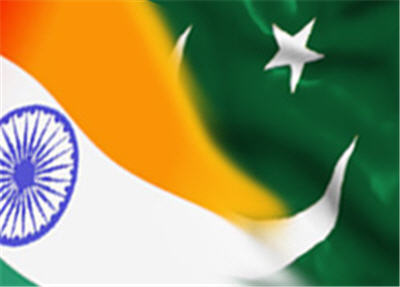
Pakistan has diverted troops away from anti-terrorist operations in order to safeguard against an attack from India. Meanwhile, India and Saudi Arabia are calling for “joint action” against terrorists. BBC:
The Pakistani military has scaled down its operations against Islamist militants in the north-west following tensions with India, officials say.
Some “unannounced changes” have been made in the deployment of troops after Indian jets violated Pakistani air space on 12 December, they said.
[…]
Air strikes against militants in the restive Swat and Bajaur regions have been scaled down as some of the airpower had to be redeployed to the country’s eastern border, a senior Pakistani military official told Asif Farooqi, the Islamabad-based correspondent of the BBC Urdu service. The official said the redeployment was ordered after Indian fighter jets violated Pakistani air space earlier this month amid reports of possible “surgical” strikes by India on the headquarters and camps of Lashkar-e-Taiba, a militant group which India has blamed for Mumbai attacks.
[…]
The Pakistani military has also decided to postpone an impending ground operation against militants in the Khyber tribal region due to the repositioning of troops on the eastern border with India, the official said.
Ironically, this is precisely the opposite of the response the Indian government was hoping to achieve with its heated language and serves no one’s interests save the terrorists’. Certainly, however, Pakistan’s response is understandable. India all but threatened to launch a war in response to the Mumbai attacks and the Pakistani government apparently believes the threat is real, despite a recent de-escalation in tone: “It has been reported that Pakistan’s army chief Gen Kayani told chairman of the US Joint Chiefs of Staff Admiral Mike Mullen in a meeting earlier this week that ‘according to Pakistani military reports, the Indians have finalised plans for surgical strikes at some locations inside Pakistan.'”
Needless to say, both India and Pakistan would be better served by targetting terrorists rather than each other.
Meanwhile, Bloomberg reports, India and Saudi Arabia are calling for a new international regime for combatting terrorism.
“Global terrorism has to be dealt with by joint action among all countries,” India’s Foreign Minister Pranab Mukherjee said in televised comments in New Delhi today in a joint briefing with his Saudi Arabian counterpart Prince Saud al- Faisal. “We agreed that whatever action has to be taken, should be taken without delay.”
[…]
The United Nations should set up an agency to tackle terrorism, al-Faisal said, describing such acts as “an evil and a cancer in our world.”
Mukherjee has told the U.S. and China that Pakistan wasn’t doing enough to catch the perpetrators of the Mumbai attack, the Press Trust of India reported. The Indian foreign minister spoke with U.S. Secretary of State Condoleezza Rice and Chinese Foreign Minister Yang Jiechi over the phone yesterday, PTI said. India asked the U.S. and China to bring pressure to bear on Pakistan to bring those behind the Mumbai attacks to justice, the news agency reported.
India had international sympathy following the brutal attacks but has squandered much of it with irresponsible rhetoric and by failing to cooperate with Interpol and otherwise adduce any evidence for its charges of Pakistani complicity.
James Joyner is managing editor of the Atlantic Council.
Image: stock-india-pakistan.jpg
